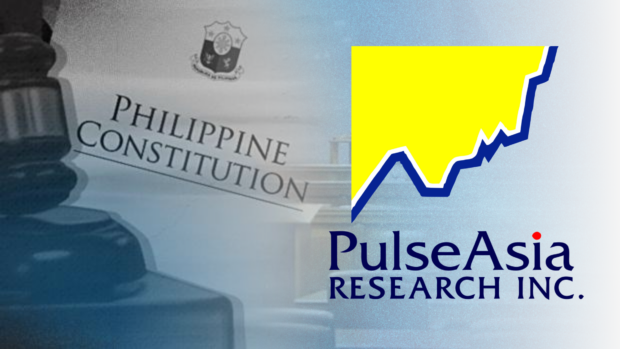
INQUIRER Files
MANILA, Philippines — While she believes that polling firm Pulse Asia is a reputable institution, Iloilo 1st District Rep. Janette Garin has raised several concerns over the manner in which the survey on Charter change was conducted.
In a press briefing on Monday, Garin asked why certain topics that were not in any way part of the current Charter change proposals — like shifting to a parliamentary form of government, term extension, exploitation of natural resources, suspension of elections — were asked from the respondents in the survey.
According to Garin, such questions may impact the respondents’ answer as to whether or not they are in favor of Charter change because they would conclude that these topics are part of Resolution of Both Houses (RBH) No. 7 when they are actually not.
“Dissecting the Pulse Asia Survey — while, of course, I respect the people behind that institution and the firm is really reputable — but maybe really nobody’s perfect. That’s why the way the questionnaire was drafted created confusion […] First, there were questions that were not really part of the debates in Congress,” Garin said.
“Of course, if your questions are about no election, term extension, shifting from presidential to parliamentary form of government, shifting from a bicameral to a unicameral (Congress) where the Senate would be dissolved, the president would be a prime minister, the terms of sitting politicians are extended, and there will be an exploitation of natural resources, it is natural for respondents to react,” she added.
RBH No. 7, derived from the Senate’s RBH No. 6, was passed by the House of Representatives on third reading last March 20.
If both the Senate and House agree on the provisions, and if it is ratified in the plebiscite, only the industries of public utilities, basic education, and advertising would be opened to foreign ownership.
READ: House approves RBH 7 on third reading
Garin said the Pulse Asia survey combined elements of the federalism push during former president Rodrigo Duterte’s time, and the economic Charter change under the 19th Congress.
Pulse Asia last March 27 said that surveys conducted from March 6 to 10 showed only 8 percent of the same respondents believe that the 1987 Constitution should be amended now, while a staggering 88 percent said it should not be touched.
READ: Pulse Asia: Most Filipinos don’t think now is the right time for Cha-cha
While proponents of Charter change have questioned the timing and the intent of the survey, those who are against constitutional amendments believe the Pulse Asia report only highlights that the government’s focus should be on poverty alleviation.
High awareness, low knowledge
Garin also pointed out that while the survey showed high awareness among Filipinos regarding Charter change proposals, knowledge about the Constitution was low — which she thinks was another factor that affected the respondents’ decision.
“Now, another thing that I actually noticed, it was stated in the first question whether they were aware of proposals to change the Constitution […] Those who said yes, before the survey, was at 72 percent; those who have not encountered is at 28 percent,” she noted.
“But if you would look at the second question, how would you describe the amount of knowledge you have regarding the 1987 Constitution?” she asked.
“The number of people who said that they had a great deal of knowledge was 4 percent; not a great deal, but sufficient amount of knowledge, 22 percent. So let’s say that sufficient knowledge is roughly around 25 percent. But those who said they are not aware is 27 percent; little knowledge is 48 percent […]” she observed.
“If you combine that, that’s 75 percent. This only means Pulse Asia interviewed 75 percent who are not aware of the Constitution,” she concluded.

